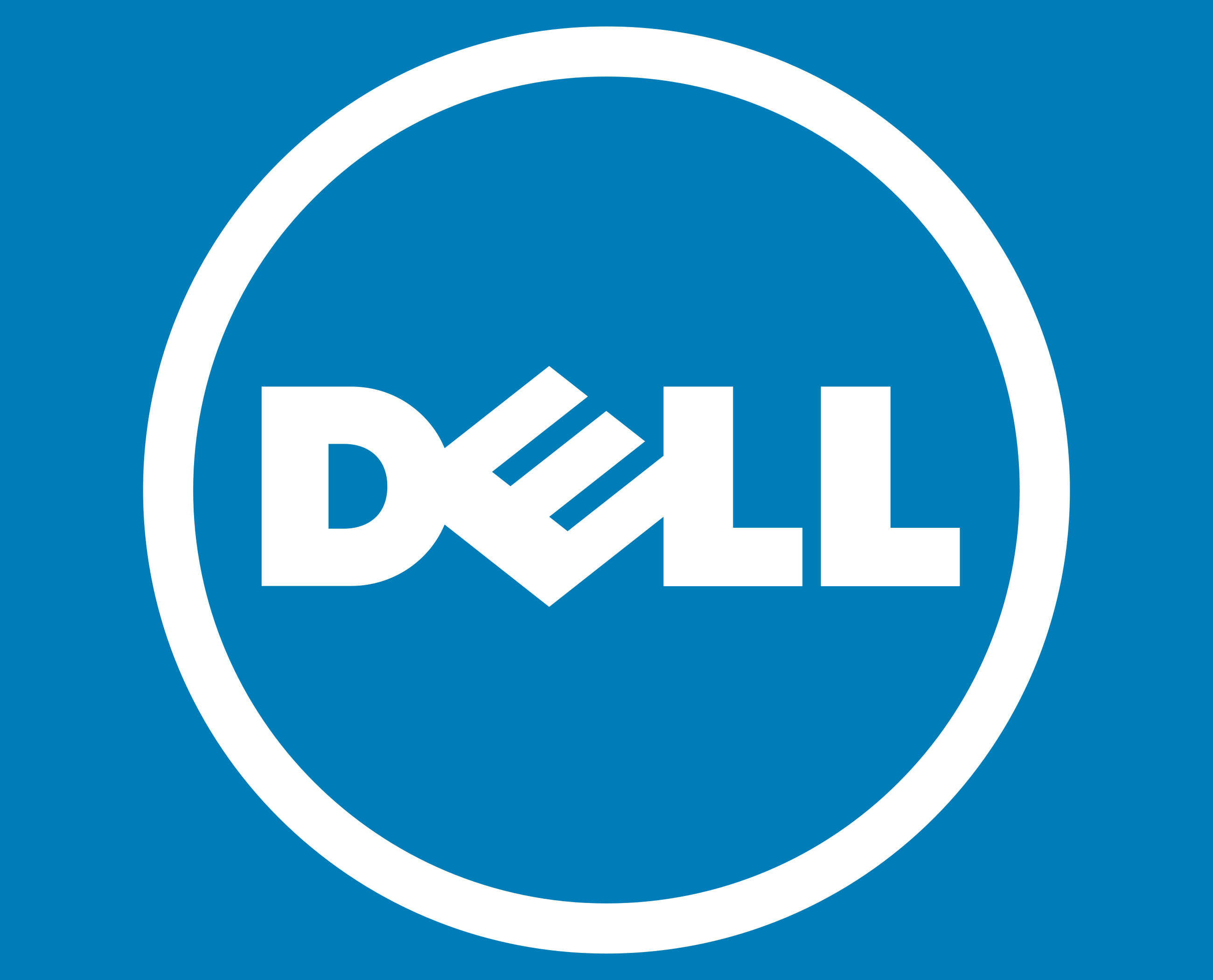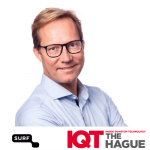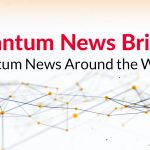Quantum News Briefs: December 23, 2023: CERN Hosts 7th International Conference on Quantum Techniques in Machine Learning; RIKEN Researchers take a different approach with measurement-based quantum computing; How the Chicago Quantum Summit is helping engineer an ecosystem; and MORE!

Quantum News Briefs: December 23, 2023:
CERN Hosts 7th International Conference on Quantum Techniques in Machine Learning
The 7th International Conference on Quantum Techniques in Machine Learning (QTML) was recently held at CERN, drawing over 300 researchers and industry partners. This conference highlighted the significant advantages of using quantum methodologies over classical computing in problem-solving, particularly in machine learning. Machine learning, which involves using data and algorithms for tasks like medical diagnosis and facial recognition, can be enhanced by quantum physics to streamline algorithmic processes. Alberto di Meglio, head of CERN’s IT Innovation section, emphasized CERN’s commitment to advancing quantum technology in particle physics and beyond. The event featured presentations from major organizations such as ESA, Google, IBM, Intel, IONQ, NASA, and PASQAL, covering diverse applications from aircraft cargo optimization to new algorithms for studying lithium compounds in batteries. Michele Grossi, a senior fellow at CERN, noted the vital role of collaboration between industry and academia in driving the quantum revolution. The conference facilitated interdisciplinary interaction by avoiding parallel sessions and creating an engaging environment, as observed by Miguel Marquina, a senior staff member in CERN’s IT department. The next QTML conference is scheduled for 2024 at the University of Melbourne.
RIKEN Researchers take a different approach with measurement-based quantum computing

The race for quantum computing breakthroughs has heated up, with a major focus on gate-based quantum computers, which operate similarly to classical computers using superconducting circuits to host qubits. However, the Optical Quantum Computing Research Team at the RIKEN Center for Quantum Computing is pursuing a different direction with measurement-based quantum computing. This method uses a cluster state of entangled qubits and processes information through a series of measurements, making it potentially more scalable than gate-based systems. The team, including Atsushi Sakaguchi, Jun-ichi Yoshikawa, and Akira Furusawa, has made significant progress in this area, recently demonstrating a more advanced form of feedforward: nonlinear feedforward. This result, essential for implementing a full range of gates in optical quantum computers, addresses the challenges of speed and flexibility in quantum computation. The team’s findings, which mark a significant advancement in the field of optical quantum computing, have been published in Nature Communications. They highlight the potential of optical systems as a promising avenue for quantum computer hardware development.
Dell expects quantum computing and generative AI to link in 2024

Catherine Doyle, MD of Dell Technologies Ireland, forecasts significant technological advancements impacting businesses in 2024. Doyle predicts that generative AI, a hot topic in 2023, will move from theoretical discussions to practical applications in the business world. She emphasizes the importance of organizing and structuring data to prevent AI sprawl and make AI initiatives more productive. Dell also anticipates a stronger interconnection between quantum computing and generative AI as the demand for data management increases, leading to major innovations in AI. Additionally, Doyle foresees a transformation in PC capabilities, with AI integration enhancing privacy, security, and sustainable design. In cybersecurity, a zero-trust approach, which advocates for constant verification and no default trust, is expected to evolve from a concept to a mainstream technology. Finally, Doyle highlights an increased focus on green technology, with businesses relying more on technological solutions to meet environmental, social, and governance (ESG) goals, driven by EU regulations and the need to reduce energy costs.
How the Chicago Quantum Summit is helping engineer an ecosystem

At the sixth annual Chicago Quantum Summit, quantum science and engineering leaders emphasized the importance of cooperation and partnership. The event, convened by the Chicago Quantum Exchange (CQE), attracted over 620 participants from 36 countries, with keynotes and panels featuring industry giants like the director of NIST and the CEO of IBM. The chief quantum officer of Photonic Inc., Stephanie Simmons, highlighted the need for systemic thinking and greater interconnectivity within the quantum field, particularly between quantum networking and computing. The summit showcased the Boeing Quantum Creators Prize, awarded to early-career researchers for innovative quantum field contributions. Panel discussions underscored the necessity of collaborative ecosystems to nurture quantum startups and the development of quantum networks. Speakers like NIST Director Laurie Locascio and Christophe Jurczak of Quantonation emphasized the critical role of partnerships and strong support systems in advancing quantum research and startups. The event also addressed public engagement in quantum technology, with discussions on the societal impact of AI and quantum tech, and the need for greater public understanding and involvement in quantum networking. This theme of connectivity and collaboration was a central focus, highlighting the quantum industry’s reliance on collective efforts for growth and innovation.
In Other News: Wired article: “The Holy Grail of Quantum Computing Is Finally Here. Or Is It?”

The future of computing, as agreed upon by major computing companies and well-funded startups, lies in quantum mechanics, a recent Wired article highlights. However, despite significant investments from governments, private companies, and venture capitalists, quantum computing still faces practical challenges, particularly in hardware reliability. Recent developments by Google and the Colorado-based startup Quantinuum have advanced the concept of a topological qubit to enhance the robustness of quantum state information handling. Both teams have demonstrated mechanisms crucial for topological qubits, but there is debate over whether they have actually created these components. The topological qubit design aims to reduce computational errors and enable more complex algorithms. Google, collaborating with Cornell University, demonstrated a memory feature in non-Abelian anyons, crucial for topological qubits, but refrains from claiming the creation of a topological qubit. In contrast, Quantinuum asserts they have created one. Despite these claims, skeptics like physicist Sergey Frolov argue that neither has achieved a practical topological qubit, citing fragility and a lack of robustness in the demonstrated components. This disagreement highlights the industry’s challenge in transitioning elegant designs and theoretical applications into practical execution, with a tendency towards ambiguous milestone announcements under financial pressure.
In Other News: The Motley Fool article: “Will Quantum Computing Take Off in 2024? Here’s 1 Magnificent Stock to Buy If It Does.”

A recent Motley Fool article highlights that IonQ (NYSE: IONQ), a leader in quantum computing, is emerging as a crucial player in the intersection of artificial intelligence (AI) and quantum technology. Still in its early stages, Quantum computing utilizes qubits for parallel processing, enabling a vast array of outcomes from a single input, in contrast to traditional computing’s binary bit system. This advanced capability is especially beneficial for complex tasks like AI, drug discovery, and engineering simulations. IonQ, with its pioneering technology, reported a significant 122% revenue increase to $6.1 million in Q3, alongside impressive bookings of $26.3 million, raising its total to $58.4 million. This surge in demand, highlighted by a $25.5 million purchase from the U.S. Air Force, potentially positions IonQ to become a dominant force in quantum computing. However, the company faces challenges, including a substantial operating loss and the pressure to achieve profitability before its current funds run out. IonQ’s future, with its high market valuation and the potential interest from tech giants like Alphabet or Microsoft, hinges on the broader adoption and impact of quantum computing. As a speculative investment, it presents both a high-risk and high-reward scenario, making it a possible but cautious addition to an investment portfolio.
Kenna Hughes-Castleberry is the Managing Editor at Inside Quantum Technology and the Science Communicator at JILA (a partnership between the University of Colorado Boulder and NIST). Her writing beats include deep tech, quantum computing, and AI. Her work has been featured in Scientific American, Discover Magazine, New Scientist, Ars Technica, and more.





















